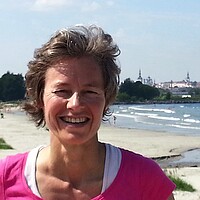25 years later, western Germany is still pumping money to the east
| Görlitz, Germany
The German city of Görlitz, located in the east on the border with Poland, boasts a revitalized center, boosted by generous federal funds. But it has struggled to build a robust job base or stem a massive exodus of the young.
Almost 400 miles west, Dortmund, located in Germany's industrial Ruhr valley, is also struggling, hard hit by the decline of the traditional coal and steel industries.
Yet Dortmund regularly channels part of its budget to eastern districts such as Görlitz.
Twenty-five years after the reunification of East and West Germany, western cities and districts continue to contribute funds to the federal budget for the east’s development, under the government’s fiscal equalization plan. But frustration at the burden has been on the climb, and a growing number of people in the donor districts argue that the transfer system is draining revenue they badly need themselves, and that it’s time for Germany to rethink its notion of "solidarity."
Rebellion against solidarity
Some $1.8 trillion – or almost $70 billion a year – has flown into the former East Germany since the Berlin Wall fell in 1990, as part of an aid package pushed through by Chancellor Helmut Kohl to help ex-communist regions reconstruct. “Solidarity” was the core principle of the 1993 roadmap. The notion is also enshrined in the Constitution, which guarantees the uniformity of living standards for all Germans.
The country's fiscal equalization plan required the more prosperous western regions to share tax money with the poorer east. In addition, a solidarity “surcharge” of 5.5 percent of people’s income taxes would give the state leeway in financing general costs of reunification, and a “solidarity fund” of $13.7 billion would be given to each ex-communist state annually for rebuilding infrastructure.
Aid funds lifted Berlin and other eastern regions out of economic doldrums, gave rise to new universities and autobahns, and helped cover the heavy social costs, such as pensions for millions of Germans, who, under communism, neither had to worry about pensions nor contribute to the pension system.
But they also produced serious drawbacks over time, says Joachim Ragnitz, director of the Ifo Institute for Economic Research in Dresden. In some areas, they fostered a culture of dependency. And in many of the east’s rural regions, they failed to scale back unemployment or improve industrial productivity. On many indicators, the east may need decades longer to catch up, if it ever does.
“Germans do not accept [the idea of] inequality between people and regions,” says Mr. Ragnitz. “This has some advantages and some disadvantages.”
A new form of solidarity
Most aid measures were intended to be temporary. But in 2004, as the east continued to lag, the government extended the solidarity pact to 2019. By then, it was thought, the gap between the east and the west would be closed. Although the aid package is now being gradually phased out, there is a general recognition that another one will follow.
Both the struggling industrial regions in the northwest and the more well-to-do south argue that it’s time for solidarity to transcend the east-west divide. Subsequent efforts should emphasize instead the difference between weaker and stronger economies across the country, they argue.
In January, the state of Hesse, home to country's financial capital of Frankfurt, joined the industrial powerhouse state of Bavaria in asking Germany's highest court to check the constitutionality of the fiscal equalization plan. “We in Hesse feel solidarity, but we are not stupid,” the state's finance minister, Thomas Schäfer, said then. “The volume of money is taking staggering proportions.”
Hesse, along with Bavaria and Baden Württemberg, transferred $10.5 billion to 12 of the country's 16 states in 2012, according to federal figures. Bavaria alone paid half. And the city-state of Berlin received about half – some $4.1 billion – because, financially speaking, it is the country's weakest region.
“The pain threshold has been reached,” said Markus Söder, a member of Angela Merkel's Bavarian sister party, the Christian Social Union. “We can no longer tolerate that Bavarians continue to be penalized for their courage.”
A quarter-century after Germany became whole, many feel that investment in the east was made at the expense of investment in other struggling regions. Increasingly there's a call for a rethink of fiscal equalization, keeping in mind the constitutional necessity of enabling equal living conditions across Germany.
“The solidarity funds will continue beyond 2020,” says Ragnitz. “But it won't be only between the east and the west, but between the poorer and the richer regions.”






